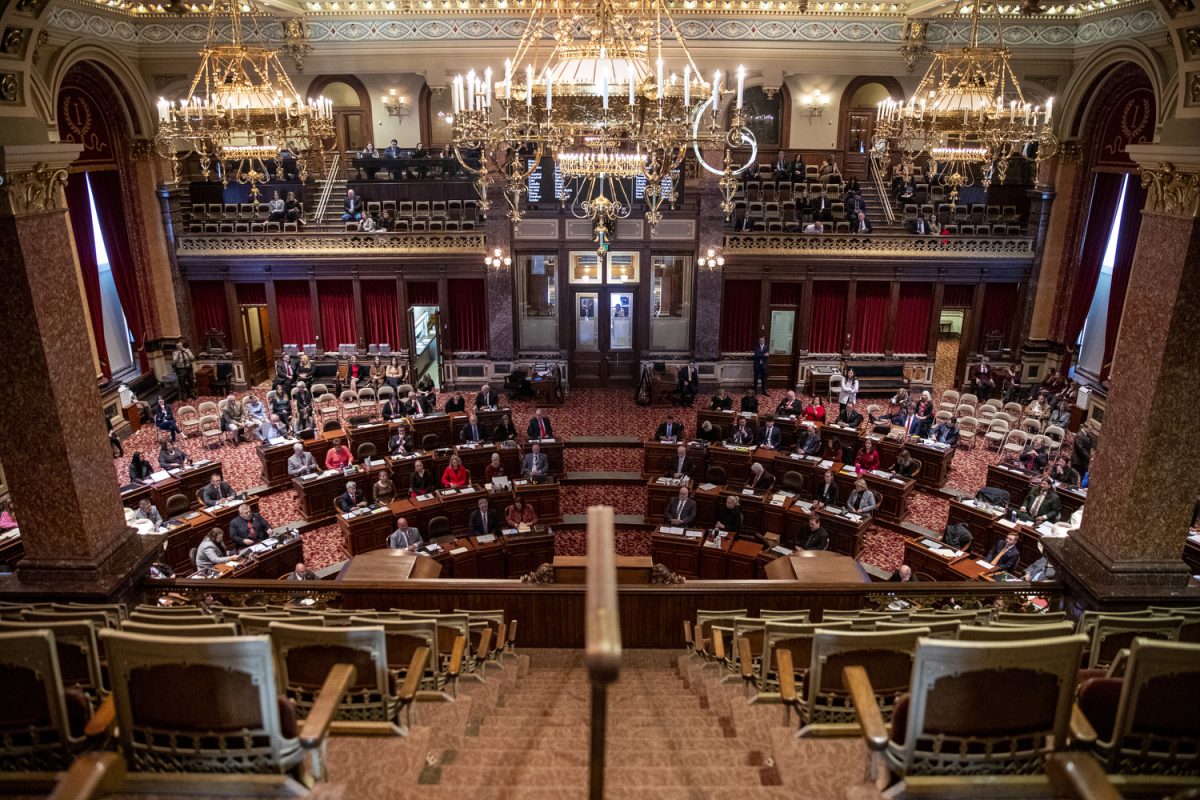Iowa Senate Republicans advanced a bill to increase state aid to public school districts by 2 percent, or a $102 million, from the current budget year.
The move signifies the start of lawmakers’ race to cobble together the state’s multibillion dollar budget. The bill suggests the Iowa legislature may stay close to the governor’s $9.4 billion budget proposal released in early January.
The largest part of that $9 billion puzzle is the amount of aid that the state gives Iowa’s public schools, which roughly accounts for half of state spending when combined with other spending on education.
Lawmakers approved a 3 percent increase in funding last year, accounting for $3.7 billion of the state’s $8.9 billion budget for fiscal 2025. If the 2 percent increase is signed into law, it would account for $3.8 billion of the state’s $9.4 billion proposed budget for fiscal 2026.
Iowa Senate Republicans gave their proposed 2 percent increase, Senate Study Bill 1053, committee approval on Thursday. All Democrats on the Senate Education Committee voted against the proposal.
Ranking member of the Senate Education Committee Sen. Herman Quirmbach, D-Ames, said passing an increase below 5 percent would place the burden on Iowa property taxpayers to foot the bill for budget shortfalls for Iowa’s public schools that have a budget increase of at least 1 percent guaranteed under Iowa law.
Melissa Petersen, a lobbyist with the Iowa State Education Association, the state’s largest teacher’s union, said that the number wouldn’t even keep up with inflation.
“We are concerned that 2 percent [State Supplemental Aid] will not be enough of an investment in new resources to keep up with the just general accelerated expenses of all the things you’ve already heard about,” Petersen said. “Inflation is still hovering around 3 percent, and it is just costing more to continue to provide the quality services in our public school settings.”
Republicans on the panel of Iowa lawmakers that initially approved the bill said the 2 percent increase is still substantial and the state spends over 50 percent of its budget on education spending.
RELATED: Reynolds aims to fund fiscal budget with state reserves
“I think $4.2 billion is an adequate amount out of a $9 billion budget,” Sen. Tim Kraayenbrink, R-Fort Dodge, said on Thursday. “I think it shows our priority. I know there’s people on the other side that when we say education is a priority, we get laughed at. I think once people know that almost 50 percent of our budget goes to K-12 — this is not including higher education — I think it kind of shows where priorities are.”
Iowa House Republicans advance bill to cap state university tuition increase
Iowa House Republicans advanced a bill Thursday that would cap tuition increases by Iowa’s three public universities at 3 percent each year and would prohibit universities from increasing a student’s tuition if they graduate within a reasonable time frame.
The bill, House Study Bill 51, would exclude out-of-state students from the protections under the bill. The bill also requires the regent universities to offer three-year degrees.
The bill comes after similar proposals from both sides of the aisle stalled last session.
Democrats worry that if the bill doesn’t come with an increase in state funding, university budgets will be strained, causing institutions to cut down their services.
“I kind of like the thought of capping it at 3 percent,” Iowa Rep. Dave Jacoby, D-Coralville, said. “I’d like it tied to what the state funding is, too, because if we’re asking the university to maintain a budget, then it should be our responsibility to keep at least a 3 percent increase here directly to the regents.”
Republicans said that it is time to start thinking of the students’ needs rather than just the universities’ needs when it comes to budget certainty.
“I think it’s time we start providing some certainty to students, rather than the institution themselves,” Iowa Rep. Taylor Collins, R-Mediapolis, said.
The bill now advances to the full House Higher Education Committee for consideration.



